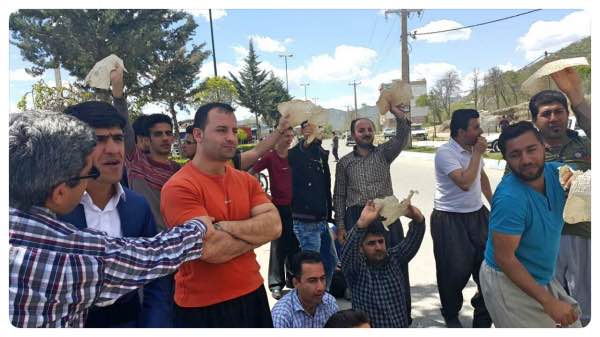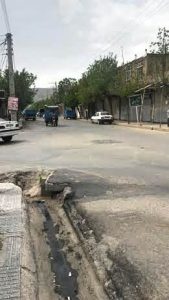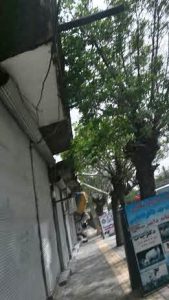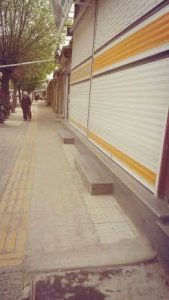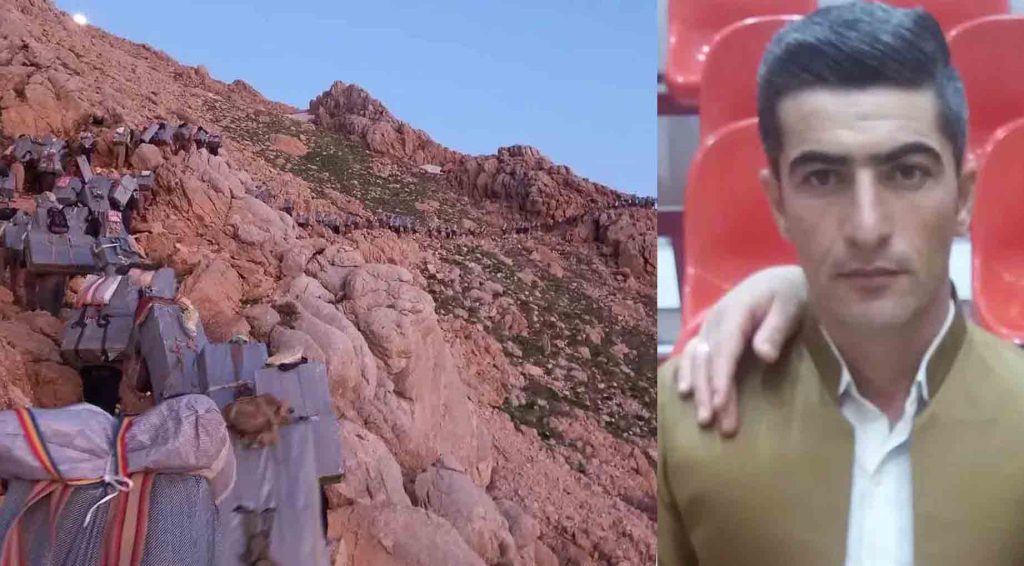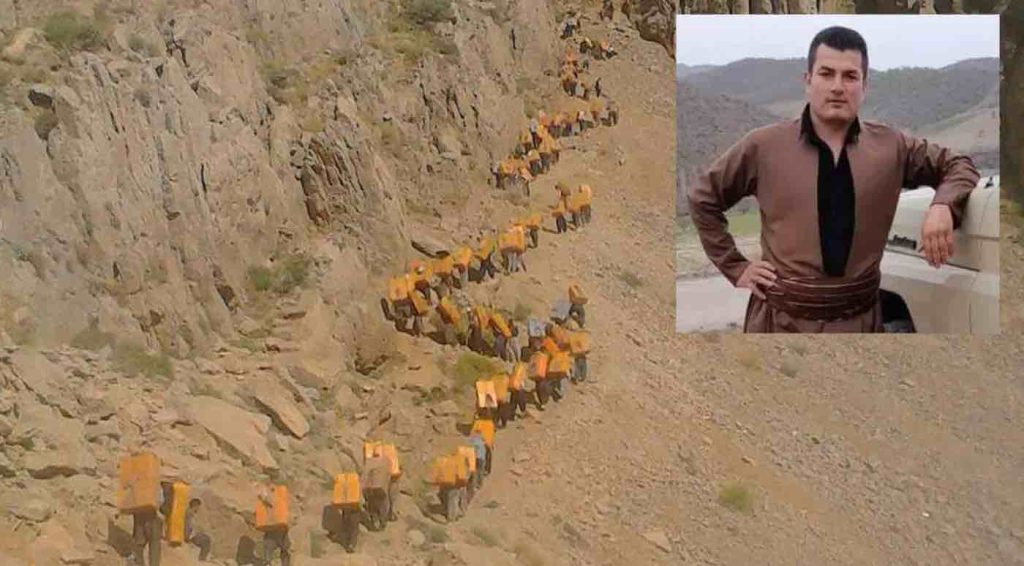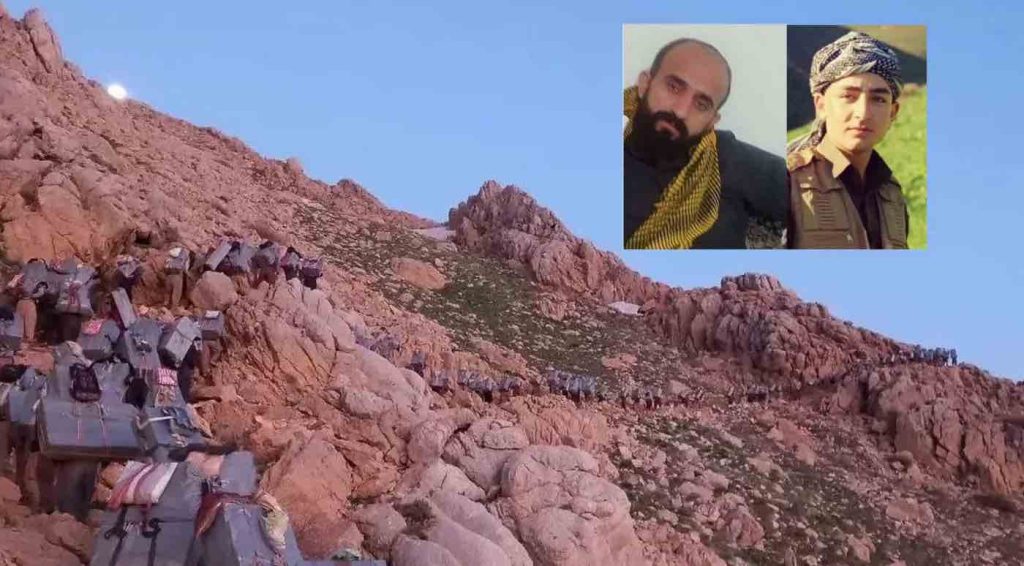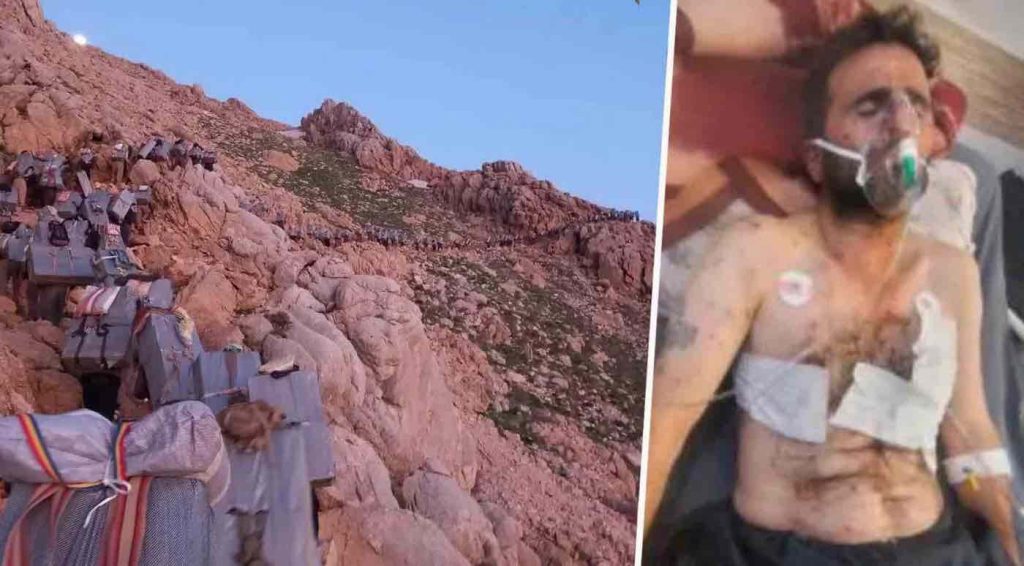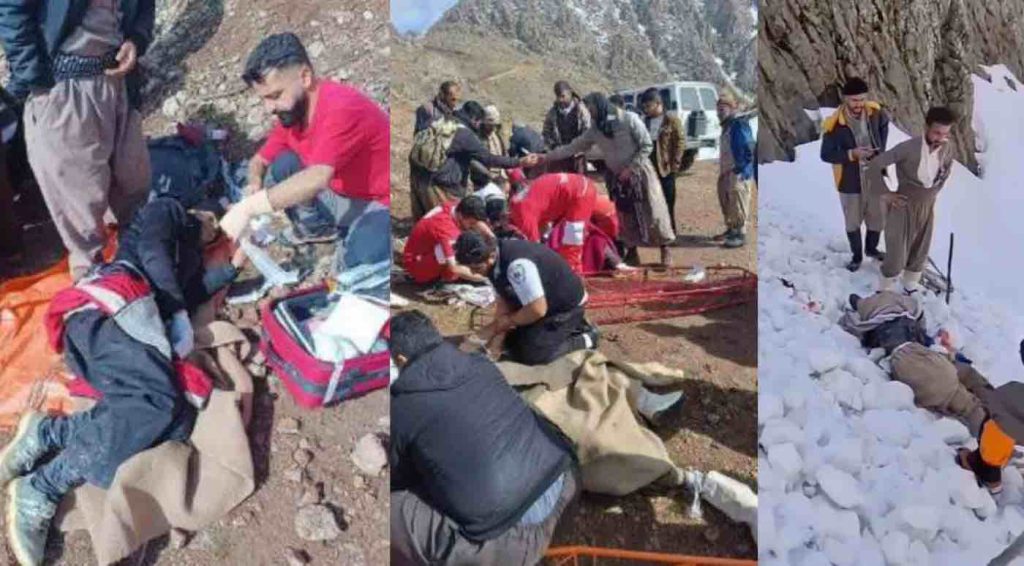Kurdish shopkeepers, Kolber workers and tradespersons in the Iranian Kurdish city of Piranshahr have jointly protested against the border closure with the Kurdistan Region of northern Iraq, a reliable source told Kurdistan Human Rights Network (KHRN).
The Iranian Kurdish city of Piranshahr is situated on the Iraqi Kurdish region’s border.
“The protesters gathered outside the building of the city’s governorate in Piranshahr demanding complete opening of the border with territories of Iraq’s Kurdistan Regional Government [RG]. The protests resulted in a public demonstration that has since doubled in terms of numbers of demonstrators,” the source said.
Over the past few years, ten border crossings between Iran and Iraq have remained open, since Iranian authorities allowed a limited number of local Kurdish Kolber workers to cross the border to “legally export” goods from Iraq into Iranian territories.
The ministry of the Interior eight months ago issued ‘Commercial ID Card’ for a limited number of workers and tradespersons to “legally” cross the border and export goods.
But the ministry just recently decided to close the border crossings and revoked policies it had earlier issued for the Kurdish workers.
Kolber work is the only way to make a living for many Kurds in the border areas but their living situation is getting worse on a daily basis due to the recent decision, which stops them from “legal” work through the border crossings.
Last week, general strike and protests spread across Kurdish cities of Baneh, Sardasht and Mariwan.
ON 16 to 18 April, tradespeople closed their shops and the local market of Mariwan remained shut for several days.
On 19 April, tradespersons gathered and marched towards the residence of the local governor to demand the complete opening of the border crossings and asked to be given work permits for all Kurdish Kolber workers.
The Governor of Iran’s Kurdistan region announced that he obtained from the Ministry of Interior a decision to temporary open the border crossings for one month, and his pledge had gone into effect, according to local sources.
However, the situation remains complicated because Iran continues to place restrictions on the types of items Kurdish Kolber workers are allowed to take from Iraq’s Kurdish territories to Iran’s Kurdish areas.

